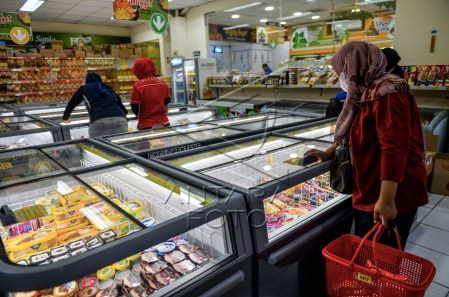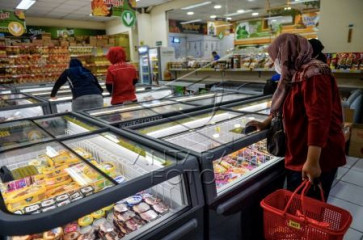Popular Reads
Top Results
Can't find what you're looking for?
View all search resultsPopular Reads
Top Results
Can't find what you're looking for?
View all search resultsPros and cons of halal certification: A historical reflection
Halal food products are not enough if they are not enhanced with good nutritional and healthy content.
Change text size
Gift Premium Articles
to Anyone
I
n the familiarization of mentoring and registration of halal certification for micro-business players in Serang, Banten, on Sept. 3, Vice President Ma'ruf Amin said that Indonesia must become the largest halal producer in the world. His desire is based on the fact that the halal industry in Muslim-minority countries (such as Brazil, China, South Korea and Taiwan) is one step ahead of that in Muslim-majority nations in developing halal products to be marketed overseas.
The government is currently forming the National Committee for Sharia Finance and Economics as one of the its efforts to develop the halal industry as a business and lifestyle inspired by religion.
One of the fundamental tenets of Islamic law is the concept of halal. Individuals who adhere to Islam are expected to adhere to the principles of halal, which encompasses what is permitted and prohibited in the Islamic faith.
When Muslims eat outside or buy a product, they generally want a halal guarantee for what they consume. At a minimum, the products purchased and the menu served must not contain pork.
In 1976, the Indonesian government began to regulate the labeling of products containing pork through the Health Ministry. The legal basis is the Health Ministry Decree No. 280/1976 on provisions for distribution and marking of food containing ingredients derived from pork. Based on this regulation, the government places a warning stamp in the form of the words "Contains Pork" and a picture of a pig surrounded by a red rectangular box on every product, which means “not halal”.
In 1987, rumors spread about the circulation of products containing pork fat, which shocked the Indonesian Muslim community. In 1988, the official magazine of the Religious Affairs Ministry, GEMA, released a special report on the research findings of a lecturer in food technology at Brawijaya University, Tri Soetanto, and his students about food products sold in supermarkets and shops.
Apart from alcohol, they found pork content such as gelatin, shortening and lard in mass-consumption products. The public became restless. The government ordered the Indonesian Ulema Council (MUI) to supervise and control products for mass consumption so that they are guaranteed to be halal.


















